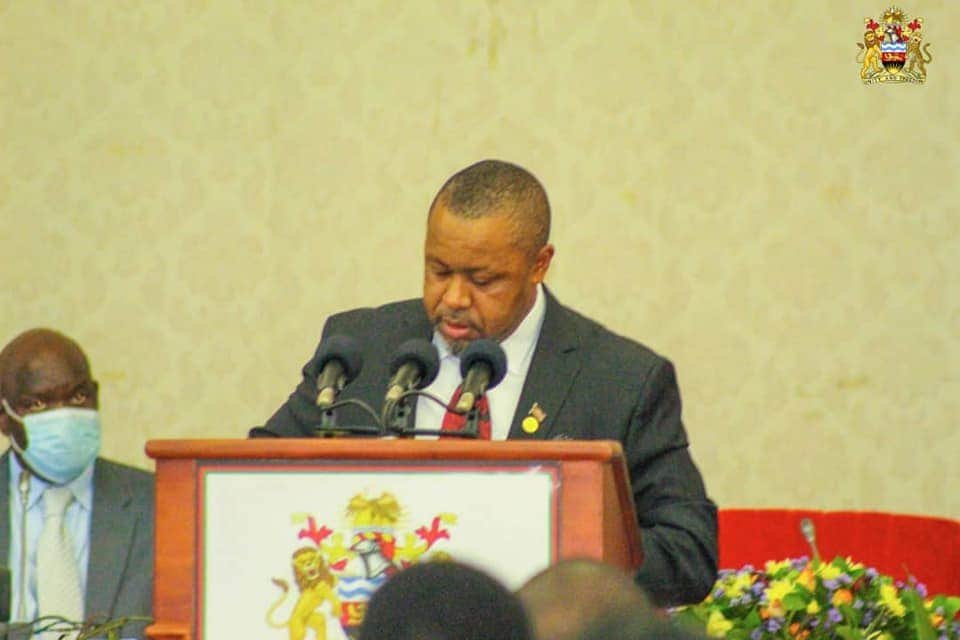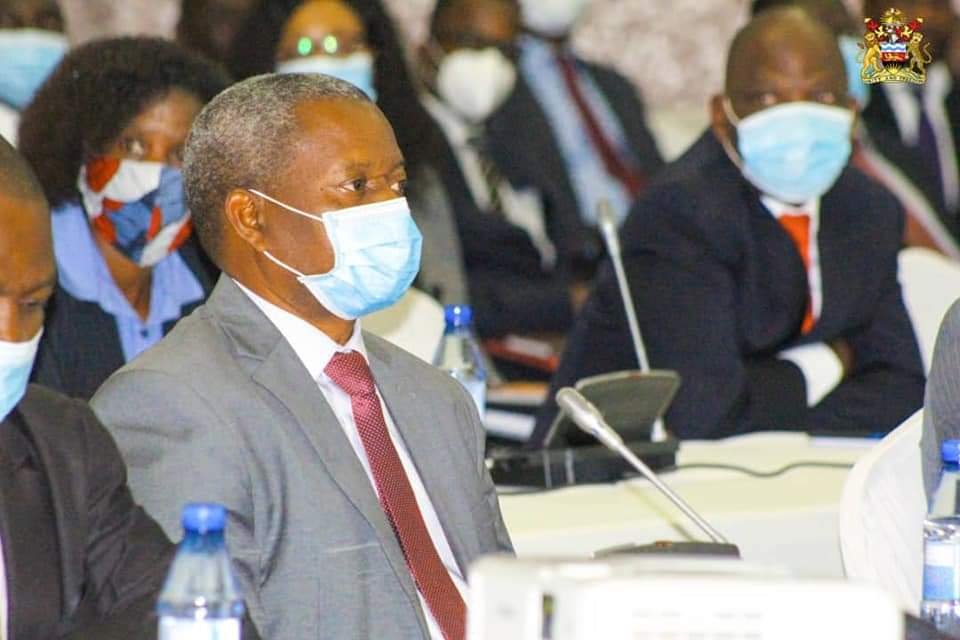By Maxwell Mulimakwenda
I am very sure that every well-meaning Malawian is following the latest developments in our country and what the current government is doing, with keen interest to ensure that the democratic gains made over the past 12 or so months, translate into socio-economic gains, national development and poverty reduction.
I have decided to provide my thoughts on the current public discourse on power sector reforms (PSR). My commentary is based on some articles I have read on social media in the past few days related to energy industry.
First of these articles is an update from the Vice President on his engagement with officials from ESCOM and EGENCO regarding challenges they are facing. This article was written on his Facebook Wall on 22/07/20. Challenges cited by EGENCO with relevance to operationalisation of PSR are to do with billions of unpaid electricity bills sold to ESCOM and non-conclusive unbundling process that has left EGENCO without legal title of assets. ESCOM, on the other hand, cited the k1.8 billion monthly bill due to EGENCO which ESCOM feel is unsustainable. Dr Chilima has promised to convene a meeting in the next few days with key stakeholders in the sector to try to map a way forward and to make some key decisions. The second article appeared in Nyasa Times with the title “MRA’s board member Lincoln Bailey opposes Power market Limited: ‘Malawi power sector focus wrong.’ There are two main issues which have caught my attention in this article: (1) where Mr Bailey is opposing issuance of a single buyer license to another state power company, Power Market Limited, on the basis that it will just add to the electricity tariff burden due to increased transaction costs, and (2) he has argued that power generation, transmission and distribution should be maintained under a unified ESCOM, that is, return to the past where ESCOM was a vertically integrated company with the three functions under one roof. The main argument here is that focus should be on increasing generation capacity and reliability of transmission and distribution under one ESCOM, and not on reforms. More on these later.

A brief context to the subject of electricity reforms in Malawi shows that a history of reforms in Malawi can be traced back to the enactment of 1998 Electricity Act, following the repeal of 1963 Act. This act paved the way for the liberalisation of the electricity sector with the aim of encouraging private sector participation. It also resulted into corporatisation of ESCOM and granting of Generation, Transmission and Distribution licences. Over the years further legislation has been introduced such as the Energy Regulation Act 2004 which resulted in the establishment of MERA, and Rural Electrification Act 2004 to provide a framework to facilitate investment into rural areas and thereby increase electricity access.
Despite the reforms, the performance of the sector has remained abysmal to say the least. There has been a lack of investment especially in generation capacity which has hampered socio-economic development at a massive scale. Power supply is erratic, unreliable and prone to hydrological and environmental constraints. The incumbent utilities (ESCOM and EGENCO) have been plagued by financial mismanagement and political interference which has made it difficult for them to attract investment into the sector. According to World Bank estimates, Malawi loses up to 7% of its GDP annually due to power cuts, more than any other country in Africa. In comparison, Kenya, Niger, Madagascar and Benin lose under 2%. Annual loss of 7% in economic output is a huge barrier to achieving sustainable socio-economic development in the country.
The power sector reforms introduced by the Electricity (Amendment) Act 2016 are meant to address the above inadequacies in the sector. To be honest, they are the deepest reforms so far in the power sector which, if implemented properly, may just set us on a path of sustainable investment in the sector by encouraging innovation, diversification and private sector participation. Three main features of the 2016 reforms are the delinking of generation from ESCOM by formation of EGENCO, establishment of a Single Buyer licence (responsible for long term planning and procurement of generation capacity) and establishment of a Market and System Operator. This sort of industry structure is not unique to Malawi, it has been followed by many other countries since the beginning of power reforms in early 1990s. To facilitate participation of Independent Power Producers (IPPs), many countries have had to unbundle the sector in this way (1) because it is relatively easier to introduce a market mechanism and competition in generation rather than in transmission and distribution, (2) to ensure a level playing field and avoiding impartial purchasing and dispatch decisions and/or a perception thereof, by the power off-taker/single buyer entity (ESCOM). For this reason, in my opinion, the suggestion that we should abandon the EGENCO project at this stage and to go back to the previous state of a vertically integrated utility will just set us up on a backward footing. We have had all functions of generation, transmission, distribution and supply under one company before (ESCOM) and we Malawians are all witnesses of the pains that we have had to endure up until this day. So, in all honest, I can’t see what we will be trying to achieve by going back. Let’s stay focused, steady and progressive in our pursuit of healthy investment in this sector. I am very confident that with the determination of the current government, the objectives of the Electricity (Amendment) Act 2016 can be realised.

My ask to the Vice President as he is discussing with stakeholders and making key decisions is to resolve the legality of the newly formed state company, Power market Limited (Single Buyer). Section 5 sub section 2 of the Electricity (Amendment) Act 2016 says, and I quote “on commencement of this Act, the Authority shall issue licenses for system and market operation and single buyer to the current holder of transmission and distribution licences.” The current holder of transmission and distribution licences is ESCOM. I am not aware of any other legislation subsequent to the 2016 Act, that may have established the function of a Single Buyer outside the current holder of transmission and distribution licences. Accordingly, we should simply follow the law by operationalising the entity of Single Buyer within ESCOM, rather than creating another company, unless the law is changed. Let me add that other countries which have had success in attracting IPPs in the sub Saharan region such as Uganda, Kenya and Namibia all have single buyer functions within the transmission licensee. Malawi will not be unique by following this structure. Additionally, ring fencing the single buyer entity within ESCOM, would result in lower transaction and agency costs.
The final point I would like to make as we are thinking about operationalising the reforms is the urgent need to address the management and financial health concerns of the incumbent entities, that is, ESCOM and EGENCO. Yes, these entities have talked about the financial challenges they are facing. However, we should look at the bigger picture of how these institutions can operate as commercial entities instead of using the current challenges to try to stifle reforms. I don’t need to repeat here a catalogue of mismanagement, mis procurement, corruption, fuel scandals and political interference which have rendered these institutions financially unsustainable and operationally unstable. These failures have been adequately catalogued in several reports, the current one being “Report on Building and Unleashing ESCOM’s Potential in The New Environment” and many other sources. I am very confident that by addressing these failures, these institutions can return to financial health and profitability and be able to honour obligations to one another and indeed to the IPPs once they become operational.
Maxwell Mulimakwenda is a Manager at National Grid in UK, a multinational energy company operating in UK and US but is writing in his personal capacity. You can address any feedback to mmulimakwenda@yahoo.com










